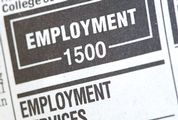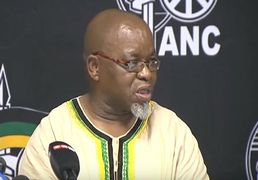THE National Prosecuting Authority (NPA) said on Wednesday that even if the High Court were to give the Democratic Alliance (DA) the order it wanted, it would not automatically mean corruption charges against President Jacob Zuma would be reinstated.
The NPA is fighting the DA’s case to set aside a decision by its former acting head, Mokotedi Mpshe, in 2009 to drop charges against Mr Zuma. The DA wants the decision set aside as irrational in law. Wednesday was the second day of the hearing set down for three days in the High Court in Pretoria.
But counsel for the NPA, Hilton Epstein SC, said that to set aside the decision — as the DA wanted — was different to setting aside the withdrawing of the charges, which ahppened in court two days after the decision was made. If the court were to set aside the decision, all it would mean was that the current National Director of Public Prosecutions, Shaun Abrahams, would have to take the decision again.
He said it would breach the separation of powers for the court to order that the prosecution should proceed as this was a decision that fell squarely inside the NPA’s discretionary powers.
In bringing his argument to a close, Mr Epstein said it was indeed rational for Mr Mpshe to seek to restore public confidence in the criminal justice system, after it became clear that the NPA could no longer "hold up a badge of independence".
When Mr Mpshe announced his decision to discontinue the prosecution, he based it on an "abuse of process", which had been laid bare in the so-called spy tapes. The tapes comprised recordings of phone conversations between former prosecutions head Bulelani Ngcuka and erstwhile Scorpions boss Leonard McCarthy.
The tapes revealed manipulation of the timing of the indictment against Mr Zuma to influence the African National Congress’s watershed 2007 elective conference held in Polokwane.
Mr Mpshe concluded that the abuse of the process was "so gravely wrong" and such a "gross neglect of the elementary principles of fairness", that it would be "unconscionable" for a trial to continue.
He asked: "Is it more important to pursue a conviction of one person ... or rather more important to assure the public that, at any cost, the NPA will not … be influenced by outsiders and will always remain independent?"
The hearing continues.

Jacob Zuma. Picture: REUTERS/STEFANIE LOOS
THE National Prosecuting Authority (NPA) said on Wednesday that even if the High Court were to give the Democratic Alliance (DA) the order it wanted, it would not automatically mean corruption charges against President Jacob Zuma would be reinstated.
The NPA is fighting the DA’s case to set aside a decision by its former acting head, Mokotedi Mpshe, in 2009 to drop charges against Mr Zuma. The DA wants the decision set aside as irrational in law. Wednesday was the second day of the hearing set down for three days in the High Court in Pretoria.
But counsel for the NPA, Hilton Epstein SC, said that to set aside the decision — as the DA wanted — was different to setting aside the withdrawing of the charges, which ahppened in court two days after the decision was made. If the court were to set aside the decision, all it would mean was that the current National Director of Public Prosecutions, Shaun Abrahams, would have to take the decision again.
He said it would breach the separation of powers for the court to order that the prosecution should proceed as this was a decision that fell squarely inside the NPA’s discretionary powers.
In bringing his argument to a close, Mr Epstein said it was indeed rational for Mr Mpshe to seek to restore public confidence in the criminal justice system, after it became clear that the NPA could no longer "hold up a badge of independence".
When Mr Mpshe announced his decision to discontinue the prosecution, he based it on an "abuse of process", which had been laid bare in the so-called spy tapes. The tapes comprised recordings of phone conversations between former prosecutions head Bulelani Ngcuka and erstwhile Scorpions boss Leonard McCarthy.
The tapes revealed manipulation of the timing of the indictment against Mr Zuma to influence the African National Congress’s watershed 2007 elective conference held in Polokwane.
Mr Mpshe concluded that the abuse of the process was "so gravely wrong" and such a "gross neglect of the elementary principles of fairness", that it would be "unconscionable" for a trial to continue.
He asked: "Is it more important to pursue a conviction of one person ... or rather more important to assure the public that, at any cost, the NPA will not … be influenced by outsiders and will always remain independent?"
The hearing continues.
























Change: -1.50%
Change: -1.43%
Change: -2.09%
Change: -1.06%
Change: -2.43%
Data supplied by Profile Data
Change: 0.06%
Change: -0.23%
Change: -1.50%
Change: 0.00%
Change: -0.09%
Data supplied by Profile Data
Change: 0.74%
Change: 0.33%
Change: 0.60%
Change: 0.52%
Change: 0.23%
Data supplied by Profile Data
Change: -2.29%
Change: -2.92%
Change: -3.40%
Change: -2.49%
Change: -0.48%
Data supplied by Profile Data